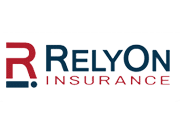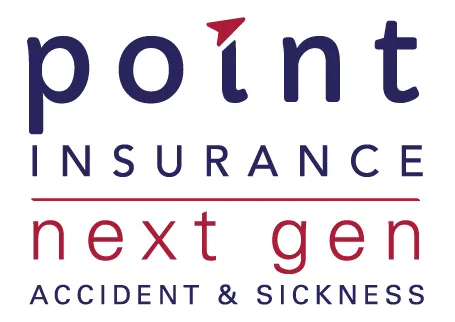Home > Business Insurance > Best Business Insurance
Best Business Insurance
Find the best business insurance to protect your company and compare policies here with Savvy.
Author
Savvy Editorial TeamFact checked








We’ve partnered with BizCover to bring you a range of business insurance policies to help you compare them side by side.
Finding the best insurance for your small or medium business can be a challenge when there are so many different types of coverage available. Knowing which policy will be the most suitable for your company can take some research. However, Savvy makes your job easy by enabling you to compare a range of insurance quotes all in one place.
Just by answering a few simple questions online, you’ll get a choice of business insurance policies to compare so you’re able to find the best one for your business. Get the protection you need here through Savvy today.
How do I find the best business insurance?
The best business insurance for you will be one that covers the most risks your business faces. Since no two businesses are alike, these risks aren’t the same either. That’s why there’s no standard small business insurance policy that will be the best option for every business.
For instance, the insurance policies a professional painter will need are entirely different from that required by a retail business.
Some of the ways to help you find the most suitable policy (or policies) for your business are:
Look first at what insurance is compulsory
Some forms of business insurance are mandatory. Examples where insurance is compulsory include:
- If you employ anyone – all employers in Australia are required to have workers compensation insurance. This is regardless of whether your employees are full-time, part-time, casual or permanent. Workers compensation is a must for all workers.
- If you are in certain professions – there are many forms of insurance that are compulsory for specific occupations. For example, nurses and allied health professionals are required as part of their registration to have professional indemnity insurance. If you’re a plumber wanting insurance in Victoria, it’s compulsory to have a type of public liability insurance which includes plumbers' warranty cover.
- If you present a risk to the public – situations in which a member of the public could get hurt often come with a compulsory requirement to have public liability insurance. This may include if you’re the operator of a fairground or want to hold a public market or put on a live show. Getting the necessary permits to hold your event will include proving you have current public liability cover of between $5 million and $20 million. The cost of this public liability insurance is often covered by the cover price of the tickets for the public event.
- If you share a building – you may be required to have commercial property insurance, glass breakage insurance or general liability insurance by the property owner, landlord, body corporate or strata title management authority.
Consider a risk assessment
Finding the best business insurance is about identifying the risks faced by your company and matching the insurance you take out to cover those risks. This can best be achieved by carrying out a risk assessment. You can either conduct one yourself or employ a risk auditor to carry out one for you. This audit will look at all the risks faced by your business to:
- Your assets – including your building, contents, stock, vehicles, plant and machinery
- Your people – including employees, customers, clients and the public
- Your business intangibles – which covers things like cyber security, intellectual property, patents and your business reputation
The best business insurance will offer protection for those areas which are most valuable to you in all of these categories, offering your business all-round protection.
Think worst-case scenario
Once you’ve identified what assets you need to protect and the risks which are possible, think about the worst-case scenario. Your risk assessment may have listed fire as one risk to consider. You may be able to cope with a small fire in your delivery yard, but consider what would happen if your entire premises burnt to the ground. Make sure the small business insurance you choose covers you for all the scenarios where your most major assets need protecting.
How do I compare different insurance policies to find the best one?
There are several aspects of business insurance that you should compare to find the best one for your personal needs. The comparison points to consider include:
Cost
The cost of your insurance policy is obviously a major consideration, but be aware that the cheapest policy isn’t necessarily the best one for you. It’s important to consider the other comparison points listed here before making your final decision.
What is included?
It’s crucial to make yourself aware of exactly what’s included in your policy. Make sure you read the fine print and know precisely what aspects of risk the policy covers you for.
What exclusions are there?
Check out the exclusions so you’re also aware of what isn’t covered by the policy. For example, water damage from leaking pipes or a freezer left open may be included, but flood damage from a river or the sea may be excluded. This will help you seek out additional cover where necessary or take further precautions to protect against potential uncovered events.
What are the maximum payout limits?
Business insurance policies come with maximum limits on the amount which will be paid out in the event an insured event happens. For example, public liability insurance may be capped at $5 million or $10 million, while business expenses insurance may only cover costs up to $50,000 a month. Make sure your business has adequate coverage if you need to make a claim.
How much will I have to pay as an excess if I have to make a claim?
Compare the excess payments which are offered with the policy and choose one which you’re comfortable with and know you’ll be able to afford. Excesses can range from $200 up to $800 or more, so choose an amount that suits your business and its financial situation.
No-claims bonuses
No-claims bonuses can wipe 5% or 10% off the overall cost of your business insurance, so check what no-claims bonuses are available and how long you’ll have to have the policy with no claims made to receive any bonuses on offer.
How much does business insurance cost?
There’s a wide variation in the cost of business insurance, as so many different variables are at play. The actual cost of your insurance will be influenced by several factors, which include:
- The industry you’re in
- The type of business you run (for example, if it’s a retail shop)
- The structure of your business (whether you’re a sole trader, partnership or another setup)
- What your turnover is and the size of your company
- How many employees you have
- The location of your business
- What type of insurance you’re after
- Your insurance history
Because all businesses are different and risks vary according to industry and location, it’s important to compare policies to make sure you’re getting insurance which is tailored to your precise needs, and the risks your business faces. With Savvy, it’s an easy process to get a range of policies to compare online instantly.
How to buy the best business insurance through Savvy

Fill out a simple form
You can fill out our simple quote form, which will only take a few minutes. Just tell us about your business, its finances, employees and more, as well as what type of insurance you’re after, and submit it online.
Compare a range of competitive offers
Compare offers online with us, thinking about how inclusions, exclusions, limits, excesses and more weigh up against each other. This will help you find the best quote for your business.
Choose the policy which is best for your needs
Familiarise yourself with all the different available options, including which additional extras you feel are important to protect your business. Select the limits you’re comfortable with and lock in your policy choice.
Buy your insurance and get peace of mind
Follow the instructions to complete your insurance application, purchase your policy and get your business protected today.
Types of business insurance
Covers legal costs and compensation claims if a third party is injured or their property is damaged due to your business activities.
Protects against claims of professional negligence or errors in your work, providing financial coverage for legal costs and damages.
Provides coverage if a product you supply, sell or manufacture causes injury or property damage, covering legal costs and compensation claims.
It is mandatory in Australia and can cover the wages of employees who are unable to work due to injury or illness incurred while on the job.
Protects your business property and assets from damage or loss due to events like fire, theft, or natural disasters.
A comprehensive policy combining public liability, property, and contents insurance, tailored for small businesses.
Financial protection if your business is unable to operate due to a covered event, covering lost income and ongoing expenses.
Covers loss or damage to your business equipment, stock, and contents due to events like theft, fire, or natural disasters.
Provides income protection in case of injury or illness, offering financial support during the recovery period.
Protects directors and officers from legal claims related to their management decisions and actions, covering legal costs and damages.
Covers your business assets, including equipment, machinery, and inventory, against loss or damage caused by specified events.
Provides coverage for liability, loss, or damage related to the operation of drones or unmanned aerial vehicles (UAVs).
Insurance that covers the cost of professional fees associated with responding to tax audits, including accountant fees and legal representation costs.
Reimburses fixed business expenses if you're unable to work due to illness or injury, ensuring continuity of essential financial commitments.
This cover protects against claims of property damage or bodily injury by a third party, covering legal costs and compensation claims.
A package of insurance suitable for small businesses that combines various different types of insurance to protect business owners against multiple risks.
Covers loss or damage to your business equipment and machinery including portable items due to events like theft, fire, or accidental damage.
Provides coverage for loss or damage resulting from theft or burglary at your business premises, safeguarding your assets and inventory.
Protects against financial losses and liabilities arising from cyber-related incidents, including data theft, cyber attacks and ransomware demands.
Covers the cost of repair or replacement of glass windows and doors and other glass fixtures and fittings due to accidental damage or breakage.
Enjoy the Savvy difference when you compare insurance with us
100% free comparison service
Find the best possible insurance coverage for your business quickly and easily here with Savvy's 100% free comparison service.
Compare trusted partners
With multiple trusted insurance partners across the country, you can enjoy high-quality online comparisons all in one place right here.
Skip the hassle and save time and money by comparing with Savvy to get instant online insurance quotes for convenient comparisons.
More of your questions about business expenses insurance
There is no one type of insurance which is best for every business. It will depend on what the risks are in your industry and the type of business you run. The best insurance will cover your most important assets, both tangible and intangible, against the possibility of the highest-risk events.
Combining insurance policies into one package will often prove to be cheaper than taking out individual types of business insurance with different insurers. Multi-policy discounts can apply, and no-claims bonuses can reduce the overall cost of your insurance.
Yes – that’s the reason why no-claims bonuses and excesses exist: to discourage small, frequent or unnecessary claims. Only claim on your insurance if you need to and consider the longer-term costs of losing your no-claims bonus or increasing your future premiums before making a small claim.
If you have no insurance coverage and the worst-case scenario does happen, your business could be destroyed and you could be left unable to continue trading. Even worse, it could cost you your home, your car and other personal assets if you don’t have protection in place and disaster strikes. Don’t join the ‘it’ll never happen to me’ brigade who are left with deep regrets when unforeseen risks become a reality.
Paying annually for your insurance will usually be the cheaper option, with discounts of 5% to 10% on offer if you pay for a year’s insurance upfront. However, monthly premiums are also common for people who prefer to space out their payments.
Business insurance by industry
Helpful guides on business insurance
Disclaimer:
Savvy is partnered with BizCover Pty Ltd (ABN 68 127 707 975, AFSL 501769) to provide readers with a variety of business insurance policies to compare. Savvy earns a commission from BizCover each time a customer buys a business insurance policy via our website. We don’t arrange for products to be purchased from these brands directly, as all purchases are conducted via BizCover.
Savvy does not compare all business insurance policies or providers currently operating in the market. Any advice presented above or on other pages is general in nature and doesn’t consider your personal or business objectives, needs or finances. It’s always important to consider whether advice is suitable for you before purchasing an insurance policy.
For any further information on the variety of insurers compared by BizCover or how their business works, you can read their Financial Services Guide.














